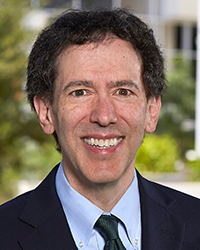Dr. David Orentlicher

Which of your recent books or articles should I read?
The recent college admissions scandal reflects a critical problem — parents with financial or political influence will try to game the system in favor of their children. And while some parents are facing criminal charges, the gaming generally is effective. Unfortunately, the well-connected are good at finding ways to promote their self-interest at the expense of others.
In my research, I look for ways to turn people’s self-interest in a direction that is good for the rest of society too. Instead of policies that generate winners and losers, we need “win-win” policies that benefit all. For college admissions, I’ve written about a model developed in Texas in which the pursuit of admission to a top-ranked college helps improve schools and neighborhoods for everyone. My article can be found here.
How do you approach teaching your favorite topics? Your least favorite?
I love teaching constitutional law, but not all constitutional questions are captivating for the students or me. So, I try to connect our coursework to hot topics in the news. That’s worked especially well this semester when we’ve been discussing the separation of powers between the executive and legislative branches. With President Trump aggressively pushing the boundaries of his authority, we’ve had timely and important matters to discuss.
In addition to making constitutional law more interesting for the students, it helps them become well-informed participants when they engage in the debate over controversial issues outside of class.
As a constitutional law professor, what would you do about the politicization of the Supreme Court?
The main problem with the Supreme Court is its failure to deliver on a fundamental promise of our constitutional system — that when people have to appear in court, they will receive an impartial hearing before a neutral judge (or group of judges). Unfortunately, the Supreme Court is not a neutral court. When it has a liberal majority, parties promoting a conservative viewpoint are disadvantaged. When it has a conservative majority, parties promoting a liberal viewpoint are disadvantaged.
The simplest fix to ensure impartiality would be for the Supreme Court to follow the model of the jury and make all of its decisions unanimously. I’ve written about that here.